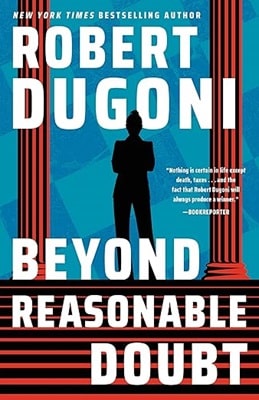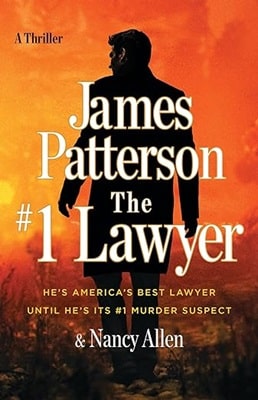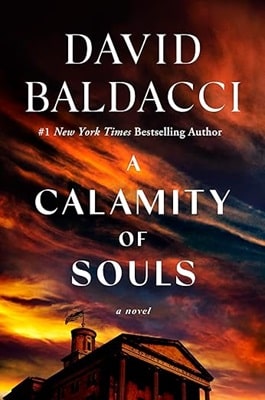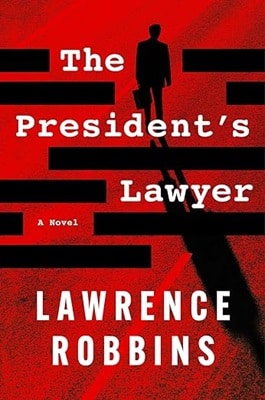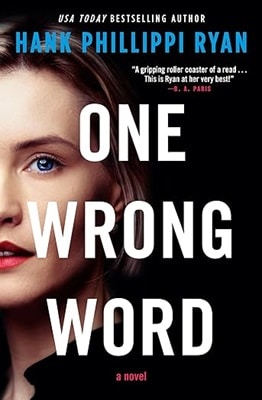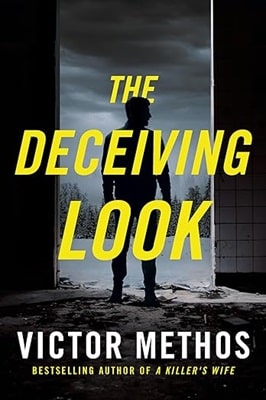
Feature
Stakes and the Political Thriller
by Michael Leppert
When looking for a thriller to read, why choose one that creates its thrills through the vehicle of politics?
For me, the tension that exists in any thriller comes from the relevance of what is at stake. The excitement of a story about a journey or quest of characters relies on our connection with them as readers. Of course, there are infinite routes into our hearts, minds, or in the case of a thriller, our nerve.
My wife and I don’t read the same books. But we do go to the movies together. Almost uniformly, if I don’t like a movie we watched together, I will say this to her: “I didn’t have anyone to root for…or against.” In other words, what happened in the climax didn’t matter to me.
But we have both spent our adult lives involved with politics and government. It is because of that, I suppose, that neither of us need to fall in or out of love with the main characters of a political thriller to still find ourselves passionately rooting for “it.” “It” is the outcome, the justice, the cause.
I remember when the film, “Titanic” was the smash hit of Oscar season in late 1997. I also remember the conversations I had with friends about going to see it. I was that guy who would say, “I wonder if the boat sinks.” As it turns out, there was plenty of tension created by the storytelling there that most of us were still aghast when the most predictable event in cinema history actually happened.
Much of America had fallen in love with Jack and Rose, the fictitious lovers whose affair died in the cold, watery grave of the Atlantic Ocean. We were all rooting for them.
Two of my favorite political thrillers succeeded with audiences primarily because of the scope of their stories, and in spite of the storytelling. All the President’s Men and Betrayal: The Crisis in the Catholic Church (which was adapted into the Oscar winning film, Spotlight) are both written by the journalists who followed the respective trails of two of the greatest scandals in American history. And in both cases, we already knew that good triumphed over evil in the end. Sort of.
I went back and read a June 9, 1974 critical review of All the President’s Men that was written by Richard H. Rovere in the New Yorker. It was far from a glowing review, though Rovere did acknowledge that the story was so important it would “in time…be the ruination of forests,” through all of its reprinting. He points out how the non-fictional account of the Watergate investigation was written by Carl Bernstein and Bob Woodward in the third person, but that it generally lacked additional insights of these authors and main characters that could have enlivened the account.
Political junkies of my generation, Gen Z, and younger, tend to find the Watergate story as told by the Washington Post’s young reporters back then, as “boring.” While my skin crawls every time I hear that viewpoint, I do understand it. The narrative is a chronology of the coverage of the Post’s tedious investigation—and the investigation itself seemed to be the main character.
In “Betrayal,” the chronicling by the Spotlight investigative team of the Boston Globe into the sex abuse scandal in the Archdiocese of Boston, created a main character out of Cardinal Bernard Law. Law was in charge of the archdiocese at the time of the investigation and during many of the voluminous abuse incidents in prior years.
Unlike “President’s Men,” which ended the presidency of Richard Nixon and led to several other criminal convictions, the outcome of the Spotlight investigation had global ramifications that continue to reverberate twenty years later.
When the book was turned into the hit movie in 2015, the filmmaking converted the reporters into the main characters. The weight of the reach and influence of the Catholic Church on the investigative team is what makes the chronicling of it into a more profound thriller.
In either case, it is hard to match the size and scope of the President of the United States, or the entire Catholic Church as villains. More importantly though, the mere number of potential victims of a president’s corruption is gigantic. The number of actual victims of the church’s abuse actually was and continues to be enormous.
These stories are non-fiction, but they serve as great examples of why the world of politics is such a popular vehicle for literary “thrills.”
Probably my favorite fictional version of the style is John Grisham’s, “The Pelican Brief.” Again, this fantastic novel from early in his career was made into a hit movie. But in this example, the movie was a clear downgrade from Grisham’s original version.
Darby Shaw, a Tulane University law student researches and develops a theory as to why two U.S. Supreme Court justices are assassinated. These two justices seemingly had nothing in common, were from different sides of the political spectrum, but were murdered on the same night. Shaw puts her theory into a brief that, through a series of personal connections, ends up in the hands of the White House. The villain is an oil tycoon who has rights to a vast supply of it in a Louisiana marshland. Drilling is being blocked by the federal government’s protection of the brown pelican there, and the lawsuit challenging the blockade is heading for the top court. The president can fill the open seats with judges the tycoon finds friendly to his cause. Oh, and this oil man is also the sitting president’s largest individual donor.
When the brief becomes known, everyone who becomes aware of it become assassination targets of the tycoon. Darby Shaw being target number one.
The killing of two Supreme Court justices in this story would swing the leanings of the court—repercussions that would be felt in America for years, if not a generation. Those stakes are high. Just describing that plot for this article made me go digging into my old books for that paperback.
The movie was a hit too, even though the novel describes Darby’s struggle to survive in a much more detailed and compelling way. Both versions of it rely heavily on its importance equally though. The tension doesn’t just come from Darby’s struggle to escape from a skilled assassin; it’s that the reach of the conspiracy would matter to millions of people who didn’t even know this was happening to them.
Every good political thriller has that extra layer of consequence. Often, those victims who can come from far and wide, are defenseless and ignorant that they are being harmed. In that regard, they are all sort of like you and me.
Only the reader gets to feel the ramifications in real time. Like a scary secret the author has only shared with you. The stories are often real, and the good ones that aren’t, sure feel like they are too. And that is why political thrillers are the best thrillers of all.
About the Author
Michael’s latest book, and first novel, Flipping the Circle, was released in November of 2021. He began writing a weekly column published in newspapers throughout Indiana in 2014. His first book, Contrary to Popular Belief, which chronicled his early writing, was published in 2016.
In 2019, he was thrilled to be invited to serve as an adjunct professor at his alma mater, Indiana University’s O’Neill School of Public and Environmental Affairs. Teaching has been a discovery for Michael as another valuable outlet for his storytelling passion. Following his graduation from Northwestern’s Master of Science in Communication program, he left his public and governmental affairs consulting practice and accepted a full time faculty position at IU’s Kelley School of Business. Solving problems through storytelling for as many people as he can possibly reach is his calling.
Michael and his wife, Amy, are both competitive golfers, beach walkers, and lovers of live music, comedy and theater. They live in a historic neighborhood in downtown Indianapolis with their rescue dog, Birdie, and have two adult children, Alex and Jack.

More Political Thriller Features
Political Thrillers for Independence Day
4th of July Political Thrillers
The Art of a Political Thriller
To recipe or not to recipe?
Stranger Than Fiction
True stories of political mysteries and thrillers




